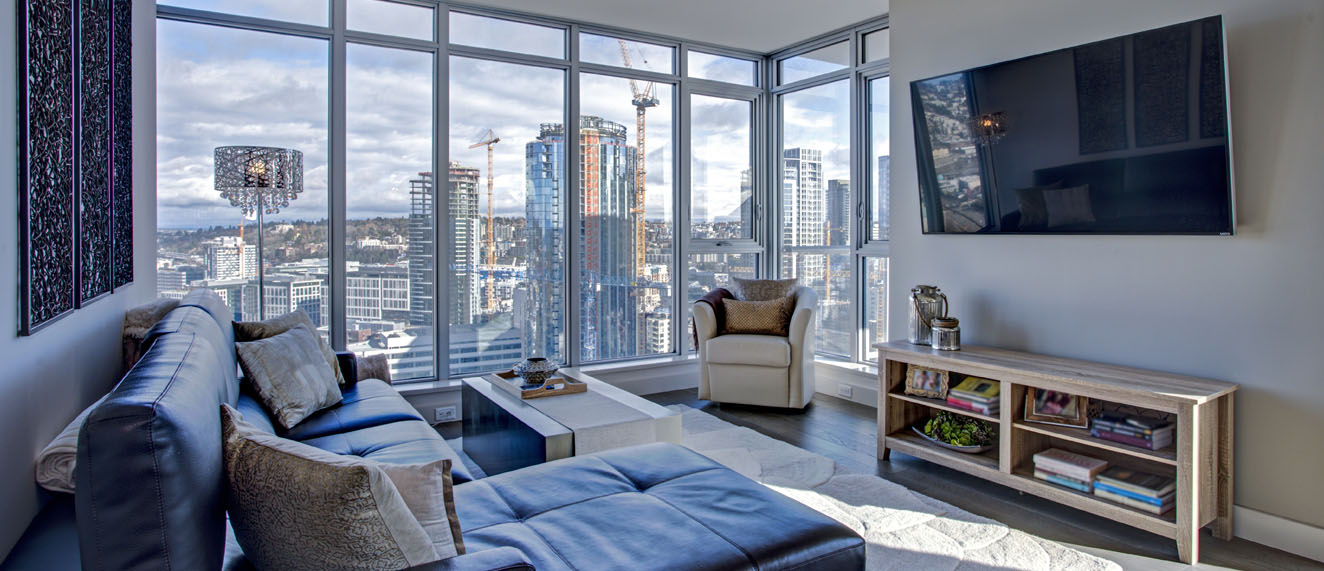
Doing your due diligence before buying a condo is of the utmost importance. Potential questions include:
They’re all questions you’ll want answers to before you decide to put in an offer.
Whether you live in a big city full of condos like Toronto, Ontario, or a smaller town like Canmore, Alberta, condos are often seen as a first step in homeownership for young adults. They’re also popular among seniors looking for low-maintenance spaces, and those who want the perks of amenities with hassle-free living.
So, what should you be asking before purchasing a condo?
Jesse Melo, a REALTOR® in Hamilton, and salesperson with the Golfi Team – ReMax Escarpment, says in his current real estate climate, there has been a slight uptick in people looking for condos because the listing price can be more affordable. He says reviewing the status certificate before finalizing the purchase of a condo is a must.
It offers a financial and structural snapshot of the building and the corporation. The certificate can tell you if the building has a healthy reserve fund for maintenance and repairs, as well as essential information regarding whether the current owners owe on condo fees or how much the condo fees have risen year over year. Early in the purchasing process, be sure to get your hands on this essential document and have it reviewed by your REALTOR® and a lawyer.
A special assessment is when a condo corporation cannot pay for a major unexpected repair or expense from the existing reserve fund. Each unit is then expected to pay an extra charge on top of monthly maintenance fees in order to complete the repair or cover the costs.
“When reviewing the condo status certificate, it’s important to make sure the corporation’s reserve fund is at a stable and healthy level,” Melo says. “This could indicate whether the likelihood of a special assessment in the future is low.”
Be on the lookout for any past special assessments and ask the board of directors or property management about any long-term future repairs or maintenance. Be sure to check on the status of snow maintenance, paving, landscaping, plumbing, wiring, pest control, and insurance. Before making a purchase, you want to make sure your condo is in sound structural and financial shape.
Melo says pets are a big topic for condo boards. Condos can have bylaws and policies that govern what kind, the number, and size of pets you can have in your home. Some condos even have bylaws requiring your pet to be approved by the board of directors. If you have a pet, either prior to putting in or before finalizing an offer, it might be worth submitting a pet application to the condo board for approval. Also, keep in mind your furry pal may not be allowed in common areas around your building like the lawn or courtyard, so take a look for close-by public parks if these aren’t options. Lastly, always get your pet approval in writing in case bylaws change down the road.
Go and check out the amenities during your condo showing! Visit the gym, sauna, outdoor area, party room, and pool if your building is equipped with any or all of these. Taking a look around will help you determine if management has been staying on top of maintenance.
“The more amenities a building has, the higher the reserve fund should be,” Melo suggests. This is so they can cover the cost of maintaining them all. Moreover, “the more amenities your condo has, the higher your condo fees could be, so you really have to look at what you will be paying for and consider if it is worth it”.
Ask about scheduled maintenance, too. For example, ask how frequently the pool is closed for cleaning or seasonally. You should also ask about who can use the amenities (are guests able to use the gym?). It’s all well and good for your condo building to have a pool, but if it’s only available a few months out of the year, it may not be as great a benefit as you think.
A condo board of directors is responsible for the building’s physical and financial well-being. They make all of the major decisions and uphold the condo’s by-laws and rules. A board is usually elected by owners, and can be made up of owners and, in some cases, tenants. Ask your board for a copy of the condo bylaws, as well as if there are any grandfather clauses in place. It also wouldn’t hurt to speak with the chair or sit in on a board meeting (if possible) to get a feel for the condo corporation’s culture.
Owning a condo is different from owning a single-family or townhome, as there are a lot more hands involved with the daily maintenance and running of the building. However, they can be a great investment, are typically closer to city centres, and can offer great amenities.
When searching for a condo, working with a REALTOR® has many benefits as they can provide you with market information, help you navigate all of your questions and ensure you’re well-informed to find a condo that’s the right fit for you and your future.
REALTOR.ca is the most popular and most trusted real estate website in Canada. Owned and operated by the Canadian Real Estate Association (CREA), REALTOR.ca provides up-to-date and reliable information that makes finding your dream property easy and enjoyable. REALTOR.ca is popular with sellers, buyers, and renters and is accessible online and on mobile devices.
